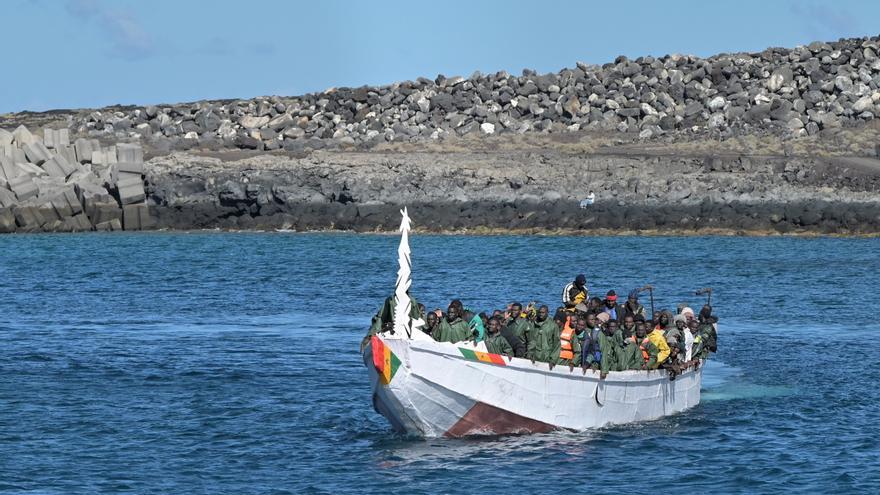
A cruise ship heading from Gambia to Tenerife rescued a canoe 815 kilometers south of El Hierro with five bodies and 68 survivors last night, as reported by Maritime Rescue to EFE.
The canoe had been spotted in the afternoon by a tanker en route to Brazil, the Philipp Oldendorff, which alerted Spanish authorities and provided assistance to the occupants of the canoe, although they were unable to bring them aboard (it is a 254-meter-long vessel, with a height that made the operation risky).
Maritime Rescue diverted the cruise ship Insignia to their location, which safely rescued the survivors on its deck and recovered three of the other five bodies. The other two remained in the canoe, as rough sea conditions prevented their recovery.
However, the crew of the Insignia left a locator device on the canoe, which is expected to help the Guardamar Urania reach their position, sailing towards them for hours with instructions to collect the two bodies.
The challenging navigation conditions complicate the forecasts, the sources specify, but the Urania will likely have the canoe in sight tonight, after making an initial stop near the cruise ship to check if any assistance is needed.
Initially, Insignia will continue its route to Santa Cruz de Tenerife port, where it is scheduled to dock on Friday around 7:00 am with the survivors and the three bodies.
Maritime Rescue has requested a more precise count and more details about the survivors from its captain, as the figure provided so far of 68 people is considered provisional.
The entire operation has been coordinated by the Maritime Rescue Centre of Tenerife, with the collaboration of the Maritime Captaincy.
According to the latest official count by the Ministry of the Interior (as of June 15), so far this year 18,977 immigrants have been rescued on the Canary Route in 290 boats, triple the number compared to the same period in 2023 (5,914).
The NGO Caminando Fronteras estimates that in the first five months of the year 4,808 individuals have died or gone missing in the Atlantic trying to reach Canarias, an unprecedented figure equivalent to almost 32 deaths daily, or one every 45 minutes.
According to the information gathered by this group through families, 47 canoes with all their occupants have been lost at sea.
One of them, which had departed from Mauritania in January, was found on April 15 on the other side of the Atlantic, off the coast of Brazil, with nine bodies onboard.
According to data published by the European Border and Coast Guard Agency (Frontex), one out of every four immigrants rescued at sea between January and May heading towards the EU was on the Canary Route: 17,976 out of a total of 66,265 (27%).
The rest is distributed between the Eastern Mediterranean, with 21,773 survivors; the Central Mediterranean, with 21,330; and the Strait of Gibraltar and the Alboran Sea, with 5,186.
Nearly half of the individuals who have risked their lives this year in canoes heading to the Canary Islands, 8,047, come from Mali, a country plagued by terrorism and internal violence for years and now also by the instability across the Sahel region.
Another 3,728 are from Senegal, 1,682 from Mauritania, and 1,180 from Morocco, according to Frontex’s figures until May.
[–>
















